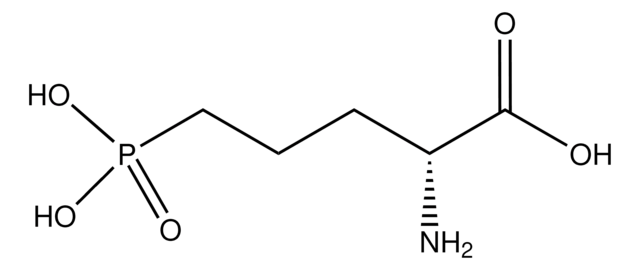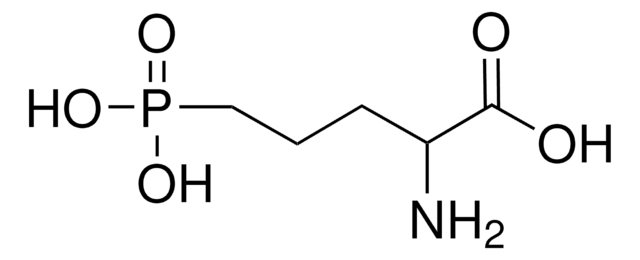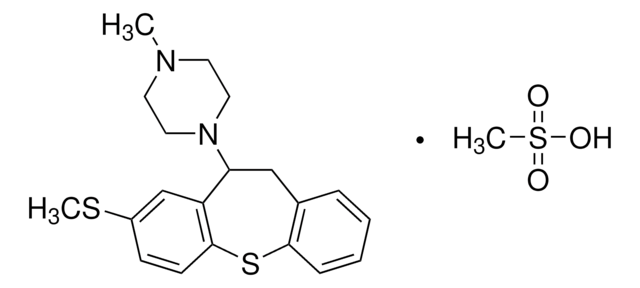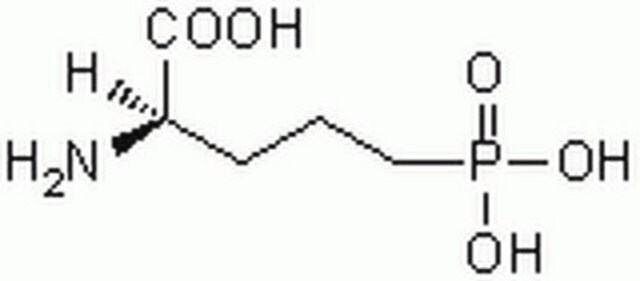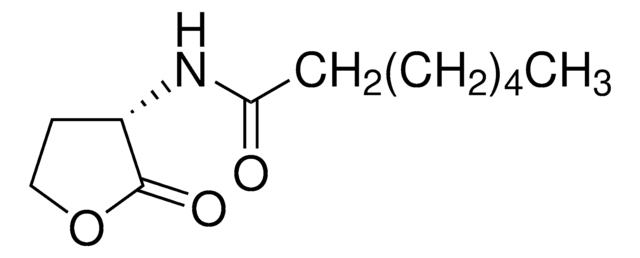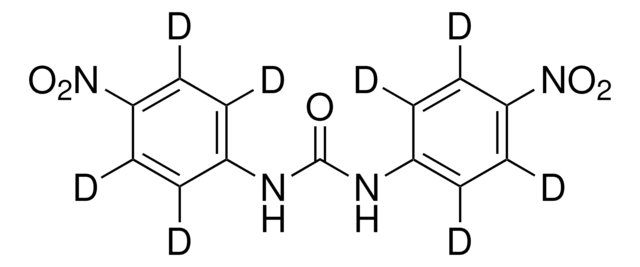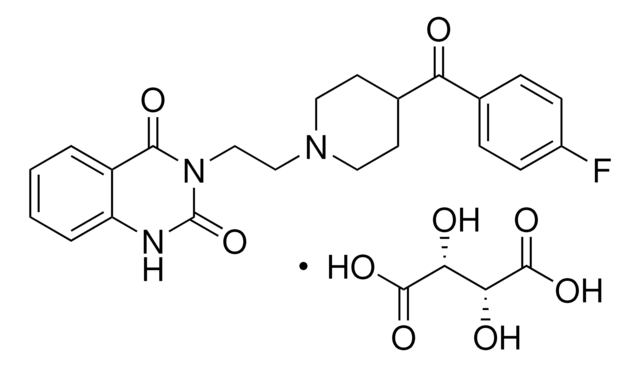A6553
DL-2-Amino-5-phosphonovaleric acid lithium salt
~95%
Synonym(s):
DL-2-Amino-5-phosphonopentanoic acid, AP-5
About This Item
Recommended Products
Assay
~95%
Quality Level
form
powder
technique(s)
ligand binding assay: suitable
color
white to off-white
SMILES string
[Li].NC(CCCP(O)(O)=O)C(O)=O
InChI
1S/C5H12NO5P.Li.H/c6-4(5(7)8)2-1-3-12(9,10)11;;/h4H,1-3,6H2,(H,7,8)(H2,9,10,11);;
InChI key
QIVHTKSFMZBERS-UHFFFAOYSA-N
Gene Information
rat ... Grik1(29559) , Grin2a(24409) , Grin2b(24410)
Related Categories
Biochem/physiol Actions
Storage Class Code
11 - Combustible Solids
WGK
WGK 3
Flash Point(F)
Not applicable
Flash Point(C)
Not applicable
Personal Protective Equipment
Choose from one of the most recent versions:
Certificates of Analysis (COA)
Don't see the Right Version?
If you require a particular version, you can look up a specific certificate by the Lot or Batch number.
Already Own This Product?
Find documentation for the products that you have recently purchased in the Document Library.
Our team of scientists has experience in all areas of research including Life Science, Material Science, Chemical Synthesis, Chromatography, Analytical and many others.
Contact Technical Service